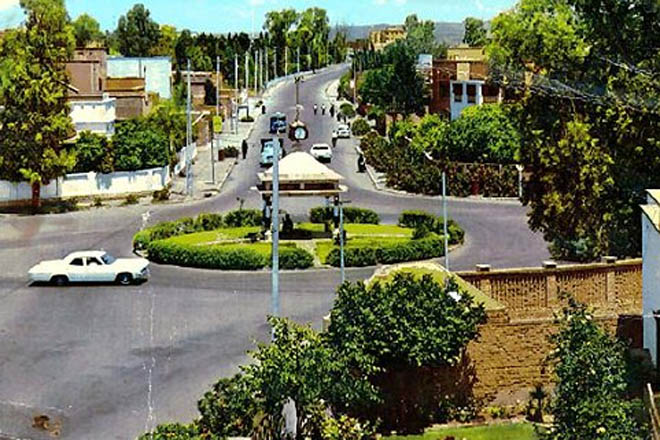The area around the disputed northern Iraqi city of Kirkuk is perhaps a strange place to look for politicians urging civil reconciliation - when much of the embattled country is gripped by fierce sectarianism.
The city and its environs have long been embroiled in a dispute so fraught that they were left out of previous parliamentary elections.
A row over voter-registration in the city delayed passage of the country's elections law for months, whilst warring politicians in the city regularly issue incendiary invectives on the main issues of the day.
Many Iraqi Kurds hope to make the city and its nearby oilfields the capital of a future independent state, calling it their "Jerusalem." Iraqi Arab and Turkmen politicians view the region as an integral part of Iraq.
In recent days, in Baghdad and elsewhere, massive crowds loyal to Prime Minister Nuri al-Maliki, a Shiite Muslim, have come out to protest against the electoral commission.
The commission decided last week to reverse a January ban on some 500 candidates' participation in the March parliamentary elections, imposed because of their alleged connections to the former ruling Baath Party.
The issue has brought tensions between Iraq's Sunni and Shiite political parties to a boil.
Yet in the sleepy agricultural district of al-Huwaija, just outside Kirkuk, candidates preparing for the start of campaigning for the March parliamentary polls say they will fight alongside al-Maliki for national unity and reconciliation.
Here the dispute is not between Shiite and Sunni Arabs, but between Arabs and Kurds.
Here, Sunni tribal leaders have found common cause with local Turkmen politicians, some of them Shiite, and with Shiite political parties in Baghdad that now share power with the Kurds.
The 80 or so farming villages that make up al-Huwaija may be rural, but their location and its demographics makes them vital.
The district is heavily Arab. Pipelines linking nearby oilfields to Turkey via Syria run through the territory. It abuts predominantly Kurdish districts. It sits at the crossroads of the entry to the critical territories of Mosul, Tikrit, Diyala and Baghdad.
In this critical district, Sheikh Khairi Nathem al-Asimi is running for parliament with al-Maliki's State of Law Coalition.
"I decided to join this list because I am confident in al-Maliki's policies, and to participate in the eradication of sectarianism and sedition," he told the German Press Agency dpa.
"Although he was unable to achieve everything he set out to do after Iraq's experience with war, destruction, and occupation, he placed the first building blocks for a state of justice and the rule of law," al-Asimi said. "He needs support."
"I believe in and strive for maintaining the unity of Iraq, and for Kirkuk's remaining an Iraqi area, as well as complete rights for all groups in Kirkuk, without one dominating the other," al-Asimi said.
"I have never been nominated before," Sheikh Ibrahim Nayef Al-Mahbari, running with the former Prime Minister Iyad al-Allawi's National Accord list, told dpa. "I will work to ensure the rights of Arabs in Kirkuk, and to ensure that the city remains Iraqi."
Al-Mahbari said he would aim to "secure a decent livelihood for the farmers and peasants, to ease some of their suffering, and to bring back jobs."
"I want to be a moderate, Arab voice for unity, rights and security," he said.
The area was formerly the site of a vigorous and lethal insurgency led by al-Qaeda and Naqshbandi militants allied with Baathists - but, while its pipelines have still come under attack - al-Huwaija has been relatively quiet since 2008.
That was when Iraqi and US forces enticed insurgents to switch sides and join Sahwa, or "Awakening," militias to police the region.
Abdel-Raziq Mohammed al-Jaburi is running with the National Front, led by Saleh al-Mutlaq, one of the most prominent politicians previously banned from running because of his alleged Baathist connections.
"Al-Huwaija is more anxious than ever to participate in the elections and to ensure a strong representation in parliament," he told dpa.
"Now that they're not threatened (by militants), people are free to consider and choose for themselves," he said.
The next month will tell whether that hope comes true.
Kirkuk's Arabs seek national unity despite sectarianism
The area around the disputed northern Iraqi city of Kirkuk is perhaps a strange place to look for politicians urging civil reconciliation - when much of the embattled country is gripped by fierce sectarianism.






